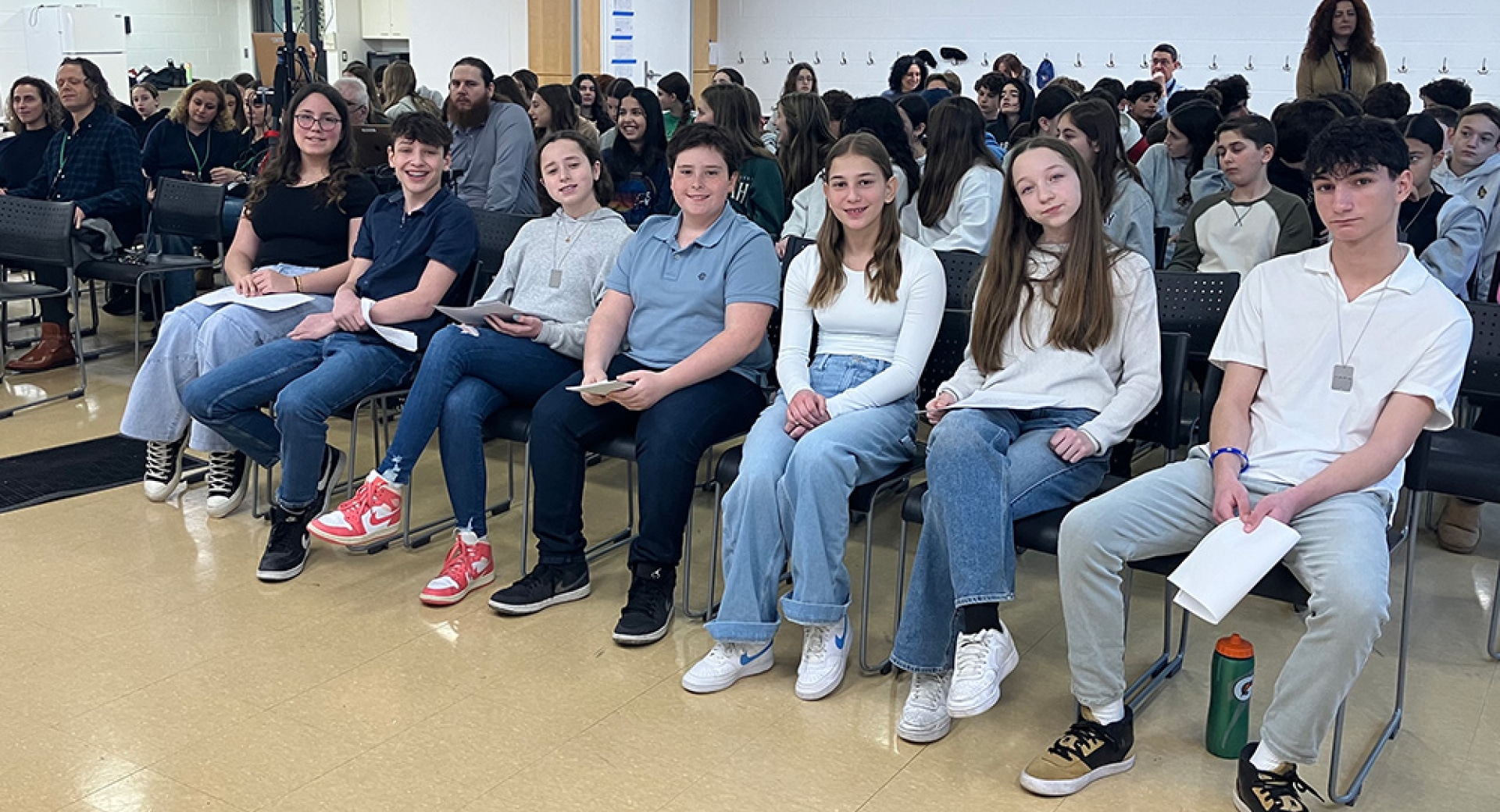
In this post, we share an article by Rabbi Gemara, Vice Principal, Curriculum and Learning at TanenbaumCHAT, who was one of the judges at our recent Grade 8 Ivrit Speech Contest. He speaks about "the potential for excellence in Hebrew language education when dedication meets opportunity. This article is a call to action for educators, parents, and all stakeholders in Jewish education, emphasizing the critical role of Hebrew in fostering Jewish identity and connectivity with Israel." It is a tribute, as well, to our Bialik Hebrew teachers, who work each day to help our students grow in their Hebrew proficiency and their connection to their Jewish identity. We thank Rabbi Gemara for allowing us to publish this post, originally published on LinkedIn:
In my series of reflections on the state of Hebrew education within Jewish day schools, I've been forthright about the challenges we face. The sad reality is that a significant number of students in North-America, after a 12-year educational journey, emerge with a level of Hebrew proficiency that falls short of allowing them to comfortably navigate a newspaper or engage in intellectual discourse in Hebrew. This situation is not merely disappointing; it's a clarion call for action for all stakeholders in Jewish education, emphasizing the critical role of Hebrew in nurturing our identity and connection to Israel.
I've previously outlined the root causes of this educational shortfall, which span several dimensions. Firstly, there's a noticeable disconnect or underappreciation of the pivotal role Hebrew plays in shaping Jewish identity and fostering a bond with Israel. Secondly, the lack of clear, ambitious educational goals, aligned with international standards, has left the curriculum of many schools lacking direction. Lastly, the absence of regular, rigorous evaluations of Hebrew proficiency has impeded our ability to effectively tailor and improve our educational strategies, missing vital opportunities for enhancement.
However, against this backdrop of challenges, I recently experienced a moment of profound inspiration and hope. I had the honor of serving as a judge at a Public Speaking competition at the Bialik Schools in Toronto, institutions renowned for their vibrant engagement with the Hebrew language. The competition showcased speeches on a wide array of topics, resonating deeply with young teenagers today, including the importance of learning music, reflections on personal journeys within Bialik, aspects of Jewish identity, and resilience in challenging times, among others.
What struck me most was the exceptional level of Hebrew fluency and command displayed by the students. Their presentations were a testament to the outcomes achievable when Hebrew language education is prioritized. The students' vocabulary, pronunciation, and articulation of complex ideas in Hebrew were extraordinary. It was particularly during Yona's presentation, the first-place winner, that all of us on the judging panel were really moved. Clearly, for these students, Hebrew is not merely a second language but a vibrant medium of expression, deeply connecting them to their roots and the broader Jewish narrative.
It's important to acknowledge that these students represent the apex of achievement within the school and may not reflect the broader student body's proficiency levels. Yet, their success underscores a vital point: Bialik School places significant emphasis on excellence in Hebrew education. This commitment to maintaining a high standard of Hebrew speaks volumes about the school's dedication to integrating Hebrew language as a core element of its educational excellence framework.
This event reinforced an essential lesson: the importance of creating opportunities for students to engage with Hebrew in meaningful, dynamic ways. Bialik School's dedication, demonstrated through this annual public speaking event, acts as a beacon of what's possible, highlighting the profound impact that dedicated, thoughtful educational practices can have on Hebrew proficiency and, by extension, students' connection to Jewish identity and Israel.
Witnessing the students articulate their thoughts and convictions in Hebrew with such clarity and passion clearly challenges the notion that Hebrew education cannot reach high standards outside of Israel. It showcases the immense potential our students have, awaiting to be unlocked through motivation, clearly defined goals, and consistent, thoughtful evaluation of our educational approaches.
Leaving the event, moved by the performances and the profound connection demonstrated, I was reminded of the transformative power of language. Hebrew, with its deep historical roots and contemporary relevance, offers our students not just a communication tool but a bridge to their heritage, actively participating in the Jewish narrative.
Sharing this experience, I am more convinced than ever that our schools can and must aspire to higher standards in Hebrew education. By fostering environments that prioritize Hebrew, setting clear objectives, and continuously assessing our progress, we can ensure our students not only learn Hebrew but live it, embodying the essence of Theodore Herzl's vision: אם תרצו אין זו אגדה - "If you will it, it is no dream." In Hebrew education, this vision is not just aspirational; it's a tangible goal within our grasp, ready to be realized for the benefit of our students and the future of our collective Jewish identity.
